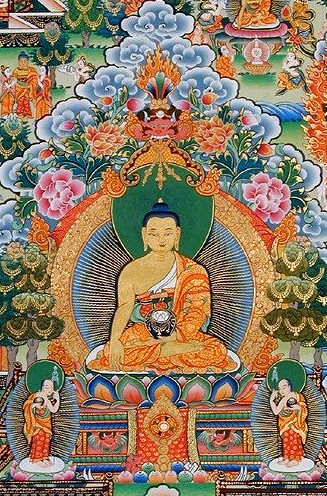Buddhism
Buddhism is based on the teachings of Siddhartha Buddha. The general creed of Buddhism is based on the "four noble truths" and the "eightfold path."
 The truths are:
The truths are:
- Life's a bitch.
- The reason life's a bitch is that people are attached to material things.
- Life doesn't always have to be a bitch. You can achieve nirvana.
- The way to achieve nirvana is by following the eightfold path.
Naturally, when you hear about these truths, you're going to be curious about the eightfold path, which consists of:
- Right views, i.e., smarten up.
- Right intentions. Once you're smart, try to do the right thing.
- Right speech. Say the right thing.
- Right action. Knowing and saying the right thing isn't good enough, you have to actually do the right thing.
- Right livelihood. Make your living in an honorable way, i.e., don't work for Halliburton.
- Right effort. All of the above doesn't just happen on its own. You have to work at it.
- Right mindfulness. Once you've beaten your physical self into submission, you have to start working on your mental state, seeking the ability to think clearly and see things as they really are.
- Right concentration. Focus, focus, focus! The path is only complete when you have refined your mind into a state of total focus on reality, which is generally thought to be accomplished by the process of meditation.
Following the eightfold path is key to Buddhism's system of spiritual advancement, in which doing the right thing (as outlined above) earns you karma, metaphysical bonus points which can be exchanged for only one fabulous prize, Nirvana. In order to make the trade, however, you have to accumulate an unspecified number of karma points, a process which usually takes several lifetimes. (Your karma points roll over when you're reincarnated.) Alternatively, you can lose karma points by engaging in wrong views, wrong intentions, wrong speech, wrong actions, and so on.
The Buddhist concept of karma comes from Hinduism, and some Buddhists revere Hindu deities. Buddhists also believe in yin and yang, which is drawn from Taoism.
See Buddha, Hinduism, Taoism, I-Ching.
|
 The truths are:
The truths are: